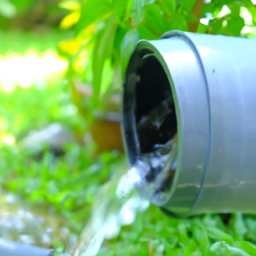How To Use Kitchen Waste Water For Gardening
How To Use Kitchen Waste Water For Gardening
How To Use Kitchen Waste Water For Gardening
Understanding Kitchen Waste Water
Kitchen wastewater is a natural form of liquid waste that contains organic and inorganic materials. These materials are obtained from dishwashing, cleaning of leftovers including the cleaning of cooking utensils, vegetable peelers and so on. The wastewater composed not only of organic matters, but also of various minerals, nitrates, detergents, acids and so on.
The Benefits of Kitchen Waste Water for Gardening
Using kitchen wastewater in the garden has its pros and cons, and when used correctly it has many advantages. The main benefit of using it is that it is a great source of plant nutrients. Aside from this, it is also very cost-effective as compared to buying commercial fertilizers. It has the potential to reduce the amount of water used, while simultaneously providing water for your garden.
Economical Benefits
Using kitchen wastewater for your garden is not only cost effective, but it is also beneficial for the environment. Since kitchen wastewater does not contain harmful chemicals, it is a safe and organic alternative to other synthetic fertilizers in the market. In addition, it helps to reduce water wastage, which reduces our water bills significantly and helps in conserving water.
Raw Materials for Kitchen Waste Fertilizers
Kitchen waste can be used to create homemade fertilizers as well. Materials such as vegetable or fruit peels, egg shells, and coffee grounds can all be used. These items can either be blended, fermented, or crushed and layered in raised beds to provide nutrients to the soil. Other materials such as food scraps, paper towels, and sawdust can also be composted and added to the soil.
Soil Health and Plant Health
Using kitchen waste water for gardening can also help to improve soil health. This is because the bacteria and organisms in kitchen wastewater can help to break down organic matter, enrich the soil with minerals, and release nutrients that plants need to thrive. In addition, kitchen wastewater can improve the permeability of soil, so that it can absorb more water. This increases soil fertility and ultimately leads to healthier and more abundant plant growth.
Safety and Cleanliness
Despite the many benefits of using kitchen wastewater for gardening, it is important to remember that it can contain bacteria and pathogens that can cause illness and disease. Therefore, it is important to keep your kitchen and your garden area clean. Additionally, if you do use kitchen wastewater, only use it directly onto your plants, and never allow any runoff to enter waterways or drinking water sources.
In Summary
Using kitchen wastewater for gardening can be a great way to save money and improve your soil health. It can provide plants with organic fertilizer and help to reduce our water bills while helping to conserve water. However, it is important to exercise caution and practice good hygiene habits when using it, as it can contain bacteria and pathogens that can cause illness.

Previous Page
Next Page
